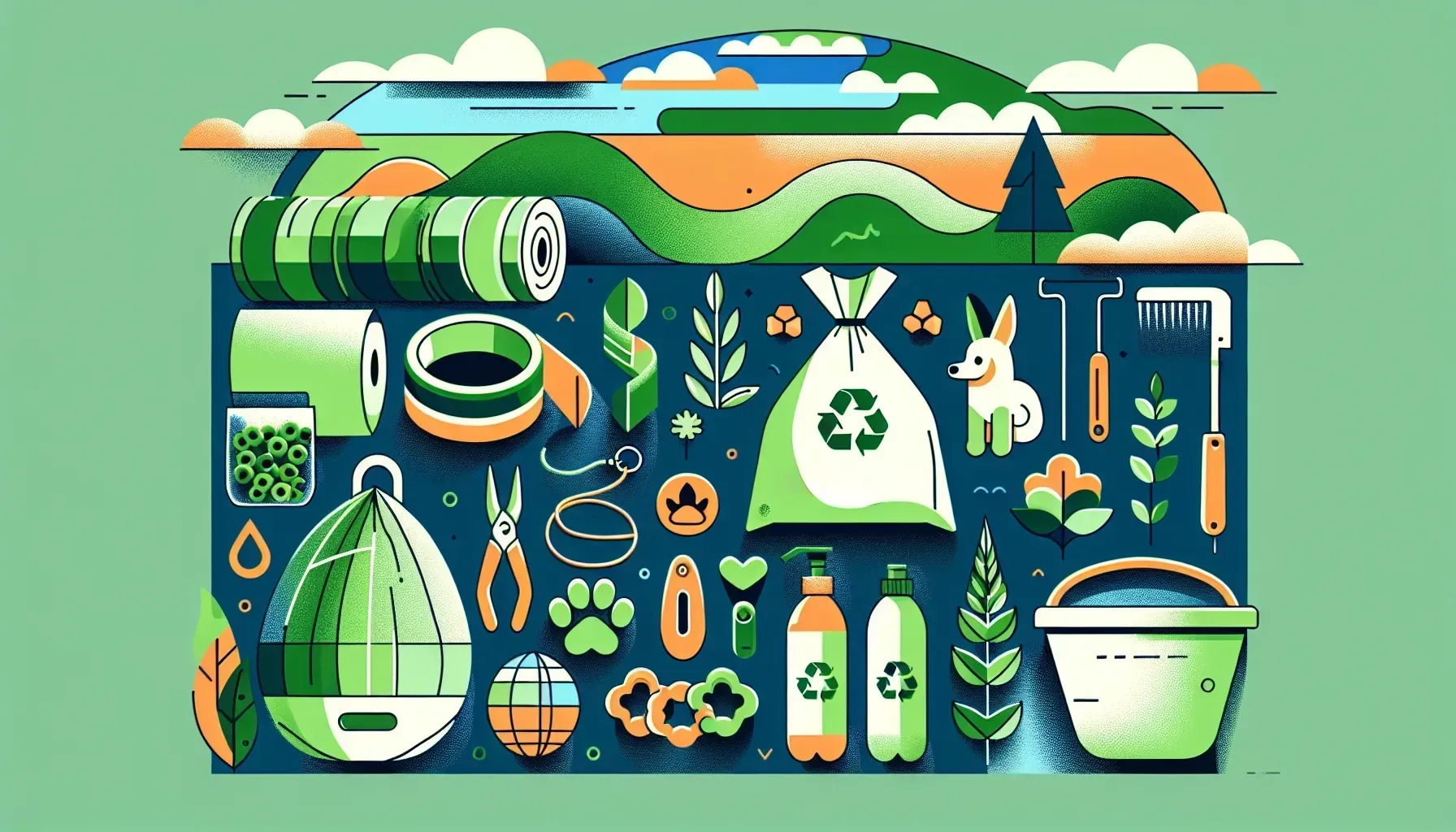
Choosing Wisely:
When it comes to pet waste, responsible disposal is crucial. Biodegradable poop bags and compostable alternatives offer sustainable solutions, but understanding the difference is key.
Biodegradable Poop Bags:
These bags break down into natural materials over time, reducing the burden on landfills and oceans. Look for certifications such as ASTM D6400 or EN 13432 to ensure their eco-credentials.
Compostable Alternatives:
Compostable bags go a step further, breaking down into nutrient-rich matter suitable for composting. Ensure they meet standards like BPI or TUV Austria to align with composting requirements.
Material Matters:
Choosing sustainable chew toys goes beyond fun – it’s about safe play and environmental responsibility. Natural Rubber:
Opt for toys made from natural rubber, free from harmful chemicals and dyes. These toys are durable, biodegradable, and provide a safe chewing experience. Recycled Materials:
Look for toys crafted from upcycled materials like recycled plastic or fabric. This not only reduces waste but also gives discarded materials a new purpose.
Beyond Nutrition:
The Case for Vegan Pet Diets
The food choices we make for our pets can significantly impact the environment, making it essential to consider both nutritional value and sustainability.
Vegan Diets:
Sourcing Responsible Meat-Based Foods
While controversial, vegan pet diets can be nutritionally balanced and reduce the carbon pawprint associated with traditional meat-based foods.
Meat-Based Diets:
The Carbon Pawprint: Reducing Our Environmental Impact
Opt for pet foods made from responsibly sourced meat to support ethical farming practices and reduce environmental impact.
Mindful Consumption:
Choosing Products with Reduced Packaging
Incorporating eco-friendly practices into pet ownership can significantly lower our carbon pawprint.
Reduced Packaging:
Related Article: Eco-Friendly Pet Accessories: Infusing Style with Sustainability
Selecting Energy-Efficient Pet Care Products
Choose products with minimal and recyclable packaging to minimize waste. Bulk purchases further reduce the overall packaging impact.
Energy-Efficient Choices:
Sustainability in Packaging: Evaluating Brands
Select energy-efficient pet care products such as low-energy grooming tools and LED pet lighting to lower energy consumption.
Under Scrutiny:
The packaging used for pet products plays a major role in their overall environmental impact. Assessing brand commitments to sustainability helps make informed choices.
Recyclable Packaging:
Seek brands using recyclable materials like cardboard or PET plastics in their packaging to support waste reduction efforts.
Minimalist Design:
Look for brands utilizing minimalist designs that prioritize product protection while minimizing packaging volume and materials.
Sustainable Slumber:
Choosing pet bedding crafted from upcycled fabrics benefits both your pet and the environment. Durability:
Upcycled fabrics often offer enhanced durability, providing long-term comfort for your pets while minimizing the need for frequent replacements.
Environmental Impact:
By choosing upcycled fabrics, you contribute to reducing textile waste and conserving resources used in traditional fabric production.
Eco-Conscious Care:
Selecting green groomers and veterinarians aligns with an overall commitment to sustainable pet care practices.
Natural Products:
Green groomers often utilize natural, biodegradable grooming products that minimize chemical exposure for your pets while being gentle on the environment.
Carbon Neutral Practices:
Some veterinarians actively work toward carbon neutrality by focusing on energy-efficient facilities and sustainable medical practices, contributing to a healthier planet for all creatures.
Frequently Asked Questions
Biodegradable poop bags break down into natural materials over time, reducing landfill waste. In contrast, compostable alternatives decompose into nutrient-rich matter suitable for composting. To ensure their eco-friendliness, look for certifications like ASTM D6400 for biodegradable bags and BPI for compostable ones.
Sustainable chew toys, made from natural rubber or recycled materials, provide safe play options for pets while minimizing environmental impact. Natural rubber toys are durable and biodegradable, while those made from upcycled materials help reduce waste by repurposing discarded items, contributing to a healthier planet.
Assessing brand commitments to sustainability helps consumers make informed choices that align with eco-friendly practices. Brands that use recyclable packaging and minimalist designs contribute to waste reduction efforts. By choosing such brands, pet owners can support environmentally responsible practices in the pet care industry.






